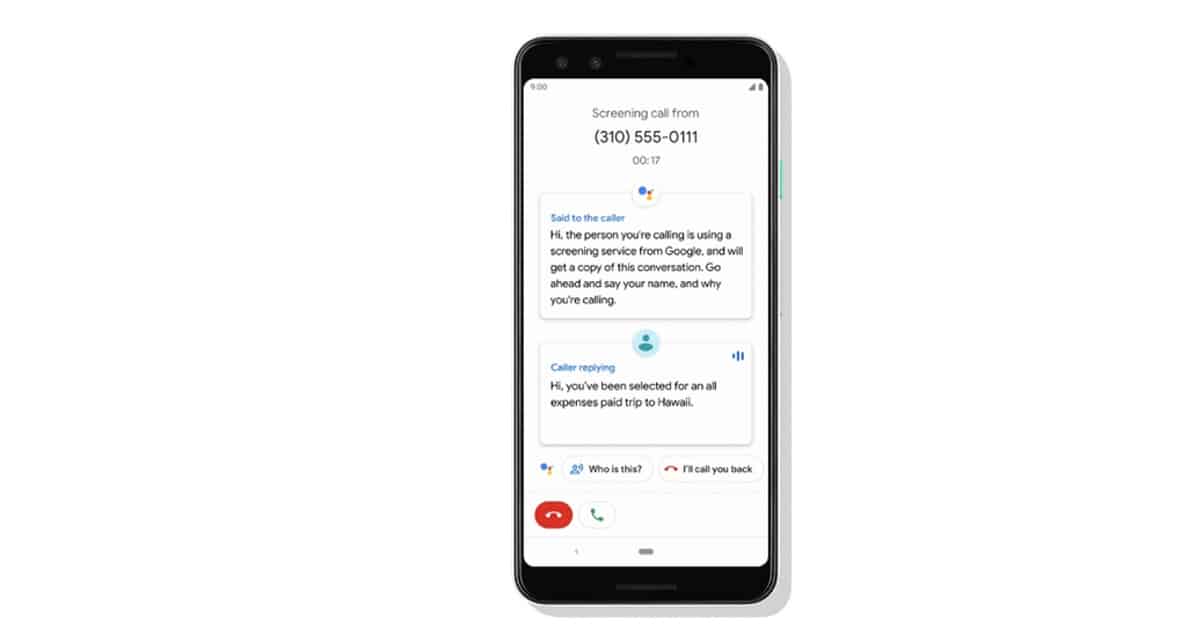Google has extended its AI-powered call screening function from the Pixel 3 to the Pixel 2 and XL. The call screening feature gives users the ability to ask a caller to give their name and reason for their call. The call recipient then gets a real-time transcription of the answer and can decide whether to reject the call, answer it or ask for more information. Ben Lovejoy of 9to5Mac would like to see Apple roll out call screening to the iPhone. I suspect he is not the only one.
Phone calls are the most annoying form of spam because they take the most time to deal with, so any tech which makes these less hassle is welcome. And, over time, telemarketers are going to experience more and more automated call rejections, and the effectiveness of the sales method will decline, effectively discouraging the use of the method altogether. Apple already has all the necessary tech for this type of call-screening. Siri is capable of both speaking to callers and performing real-time speech-to-text transcription – the only new thing Apple would need to add is the interception of the call.
Check It Out: Apple Should Introduce the Pixel’s Call Screening Feature

Before we look for technological solutions, we should first try to change current phone etiquette. Right now, the caller usually waits for the callee to say “Hello” first. In the era of robocalls that no longer works. If you are the caller, you should be the first to speak and reveal that you are a real live human being. When I receive a call nowadays, I remain silent and wait for the caller to speak up. Then I always explain to the caller that with so many robocalls, it’s incumbent upon the caller to speak first and prove that they’re a real person. So far they’ve all said that the suggestion makes sense.
So people, from now on, when you’re the caller, be the first to say “hello”.